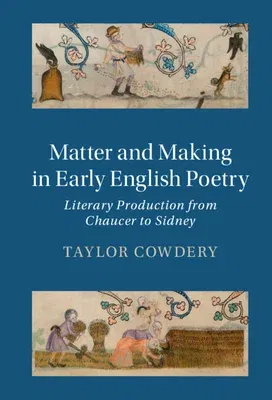Taylor Cowdery
(Author)Matter and Making in Early English Poetry: Literary Production from Chaucer to SidneyHardcover, 31 July 2023

Temporarily out of stock
Free Delivery
Cash on Delivery
15 Days
Free Returns
Secure Checkout

Part of Series
Cambridge Studies in Medieval Literature
Print Length
320 pages
Language
English
Publisher
Cambridge University Press
Date Published
31 Jul 2023
ISBN-10
1009223747
ISBN-13
9781009223744
Description
Product Details
Author:
Book Format:
Hardcover
Country of Origin:
US
Date Published:
31 July 2023
Genre:
British
ISBN-10:
1009223747
ISBN-13:
9781009223744
Language:
English
Location:
Cambridge
Pages:
320
Publisher: